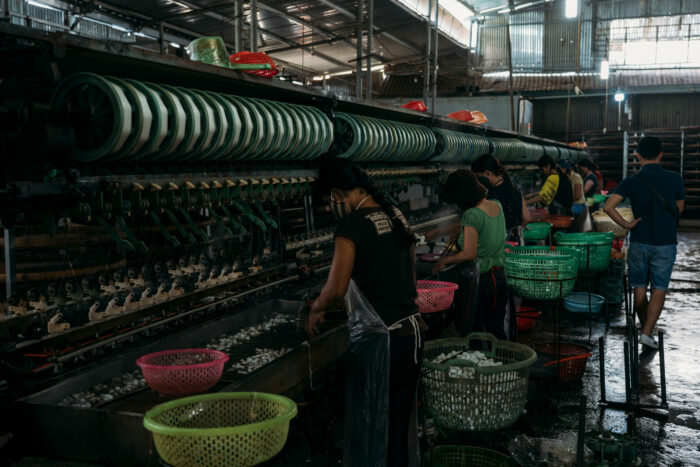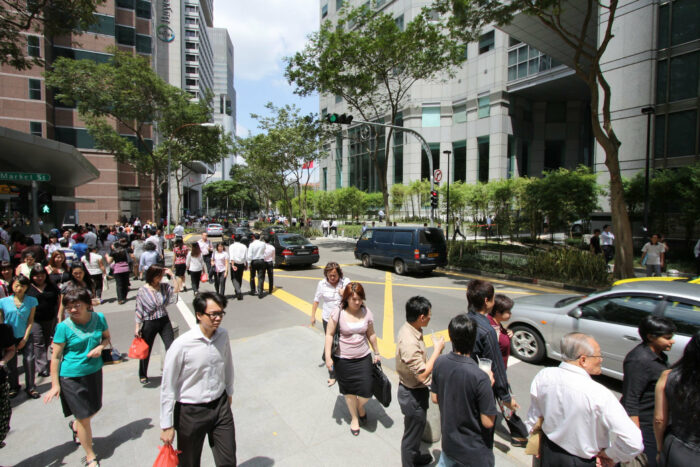Employers in Hong Kong allowed to fire unvaccinated staff

A government bill has been passed to allow employers to sack workers who refuse to receive a COVID-19 vaccination without a reasonable excuse.
Firms in Japan can use internship evaluations in recruiting

The move, expected to speed up the recruitment process, comes as the government has designated June 1 as the start of the job hunting season.
What is the talent imperative for organisations today?

A new report by i4cp and Fortune Media highlights how high-performing organisations are attracting, developing, and retaining talent.
Companies in Taiwan review compensation packages

About 44.8% of companies are considering raising wages in the second half of the year to retain their best employees.
Australia ready to implement minimum wage hike

The increase to A$40 a week will take effect on July 1, although this would be delayed for selected sectors and industries.
Thailand approves budget to hire recent graduates and the unemployed

The cabinet has approved a 3.5-billion-baht (US$99,927) budget to hire more than 68,000 recent graduates and jobless people nationwide.
Malaysia makes amendments to Employment Act

Taking effect on September 1, these include the extension of maternity leave and readjusting the maximum weekly hours of work.
Indonesia prepares more digital talent for the workforce

Besides training digital talent, a stimulant programme also supports MSMEs in improving digital skills throughout their organisation.
South Australia increases compensation for workplace injury

This comes after the state government reached a compromise with business unions, and increased the injury impairment threshold to 35% from 30%.
South Korea continues debate over peak wage system

The Supreme Court recently ruled that the current peak wage system is tantamount to age-based discrimination as it cuts wages after a certain age.
Cambodia moves to create more employment opportunities

Covering a diverse range of sectors, Cambodia has approved four investment projects slated to bring in over 2,000 jobs.
How HR leadership can continue to drive organisational success

Organised by HRM Asia, the in-person HR Leadership Series 2022 will examine the role HR leaders can play in shaping work in 2023.
Indonesia provides more support for working mothers

A proposed Bill on Maternal and Child Welfare will provide working mothers with more benefits and help develop a better generation of human resources.
Vietnam to implement regional minimum wage hike

Taking effect on July 1, the wage adjustments will be determined by the region in which companies operate in.
Parental leave increases in New Zealand

From July 1, new parents will get additional paid parental leave entitlements that will result in up to NZ$40 (US$25) extra a week.
ASEAN urged to accelerate digital transformation

With digitalisation key to economic recovery, the region will need to upskill its workforce quickly to tackle barriers to digital adoption, said the WEF.
More Australian businesses try out four-day workweek

Organisations across a range of industries are gearing up to give Australian workers a four-day working week for six months with no cut to pay.
Singapore’s investment in ICT to benefit SMEs

As more cloud-based services and smaller system projects are put out, barriers of entry for SMEs are lowered, said the government.
Vietnam to keep electronic records of employees

The Ministry of Labour, Invalids and Social Affairs (MoLISA) is planning to issue electronic employment records for workers aged 15 and above.
Malaysia registers unemployment rate of 3.9% in April

The unemployment rate for youths aged 15 to 24 reached a 10-month low of 12.8% in April, falling by 3,800 to 357,200 over the month.
South Korea deliberates on next year’s minimum wage

The Minimum Wage Commission hopes to strike a balance between the conflicting interests of businesses and unions.
More women in Singapore return to the workplace

While the number of female workers has continued to rise, about 260,000 women aged 25 to 64 remain outside the labour force.
Companies in Japan reluctant to provide lengthy parental leave

There is a large gap between the length of paternal leave employers think is appropriate and that which male employees want to take.
More companies in Malaysia register for social security protection

This will provide financial support for employees and their families when necessary, said the Social Security Organisation.
Calls for flexible work arrangements for frontline workers in Australia

These could include providing options for flexible rosters, shift swapping, job shares, compressed work weeks, split shifts and multi-skilling.
Role of remote work yet to be defined: Apple CEO

The key to a successful hybrid working arrangement is taking advantage of the strengths of both in-person and virtual engagement, says Tim Cook.
72.7% of South Korean big firms support remote work

Despite the easing of pandemic measures in the country, large companies are continuing to allow their employees to work from home.
Building workforce resiliency key for Singapore

It is essential to attract the right foreign workforce who will bring in the skills to complement the local workforce, said the Manpower Minister.
Japan to increase investment in human resources

The Cabinet has approved the first annual fiscal and economic policy blueprint that pledges aggressive investment in human resources.
New Zealand faces digital skills shortage

A new report found that challenges New Zealand firms face include plugging the skills gap, retaining staff, attracting, and hiring talent.
